People
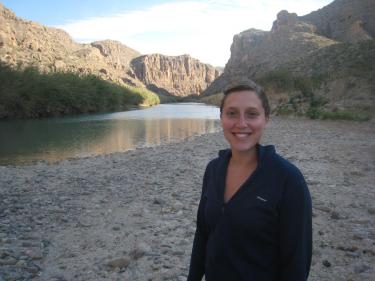
Dr. Katherine B. Lininger
Associate Professor, Department of Geography
katherine.lininger[at]colorado.edu
Department faculty page
Curriculum Vitae
Katherine's research is focused on river and floodplain dynamics and the interactions between geomorphic processes and ecological processes. She is particularly interested in the influence of river and floodplain processes on the flux and storage of organic carbon in floodplain soil and large wood; interactions between downed large wood, vegetation, and geomorphic processes; river and floodplain dynamics in the Sub-Arctic and Arctic; and coupled natural-human systems research related to rivers. Much of her research has been focused on large floodplain rivers, and she incorporates fieldwork, modeling, and geospatial methods into her work. In addition to her academic career, she previously worked for the Union of Concerned Scientists.
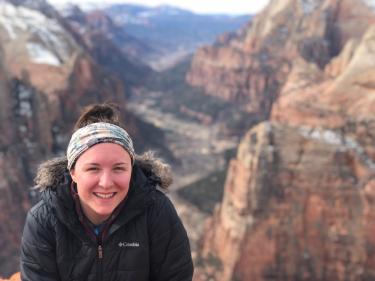
Taylor Johaneman
Taylor Johaneman is a PhD student intrigued by the complexities of rivers and how necessary our knowledge of rivers is to the functioning of our society. She is interested in fluvial geomorphology, ecohydrology, and Arctic hydrology. Currently, she is interested in the geomorphology of alluvial rivers, including knickpoint development and river interactions with riparian vegetation. While she did grow up along the Hudson and Delaware Rivers, her love for hydrology and geomorphology stemmed from entry-level undergraduate courses and her travels around the west. Taylor completed a Bachelors of Science in Environmental Science at the University of Denver and spent the past year completing several internships, including a Geoscientists-in-the-Parks position in Death Valley National Park.
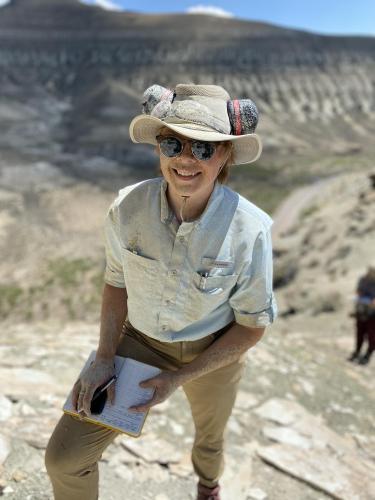
Josie Welsh
Josie Welsh is a masters student interested in the interactions between ecological and geomorphic processes, particularly the role of wood in fluvial systems. She is currently working on physical experiments to better understand the transport mechanics of large wood onto and off of floodplains. Josie received a Bachelor's of Science in Earth Sciences from the University of Minnesota, where her general interest in earth science led her to work on research projects in various sub-disciplines including paleomagnetism, structural geology and geomorphology. While Josie enjoyed and valued her involvement in all these projects, rivers and their transformative impact on the landscape are what she found most captivating.
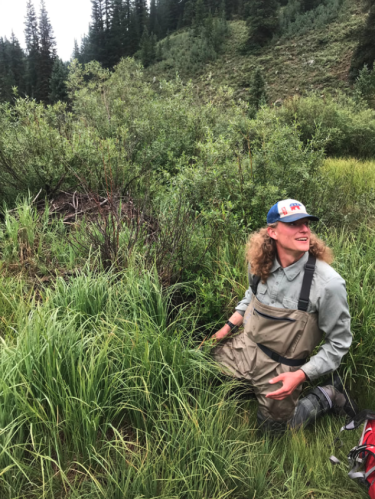
Cliff Adamchak
Cliff Adamchak is a Ph.D. student studying how beaver activity changes mercury and sulfur biogeochemistry in the critical zones of montane environments. This research is important for understanding the evolution of the critical zone in the changing climate and its ability to provide resources to ecosystems and humans. Cliff received a Bachelor of Arts in Environmental Studies and History from the University of Colorado, Boulder, and completed an honors thesis investigating mercury transfers in a small, alpine, terrestrial food web. It was here that Cliff developed a fascination with ecology and mercury biogeochemistry which led him to his interest in how animals are altering biogeochemical processes.
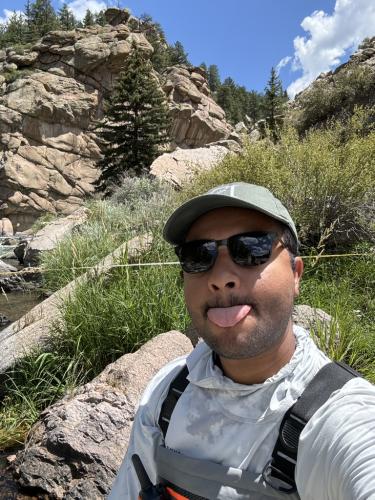
Virgil Alfred
Virgil Alfred is a MA student in Geography with a focus on fluvial geomorphology. He is particularly interested the morphodynamic response of rivers to human and climate-induced changes, as well as stream ecology. Currently, he is collaborating with the US Forest Service on a project investigating the effects of a small dam removal in a steep mountain stream. His academic journey began at Dartmouth College, where he earned a BA in Earth Sciences and Environmental Studies where he completed an honors thesis evaluating channel head formation parameters in New England streams. He has also gained valuable experience through a NASA Develop internship, where he utilized Earth Observations and remote sensing to analyze water resources in the Great Slave Lake Region, and by working on geospatial databases at the USGS in Denver, Colorado.
Lauren Thomas
Lauren Thomas is a masters student studying human impacts on organic carbon storage in floodplains across the United States. She completed her B.S. in Environmental Science and Policy with a minor in Remote Sensing at the University of Maryland, College Park. Her undergraduate research projects included assessing impacts of climate change on species fitness in the Chesapeake Bay and using remote sensing methods to map global forest disturbance. Before coming to CU, Lauren worked at Los Alamos National Laboratory studying interactions between precipitation, vegetation, and permafrost in a changing Arctic. She is especially interested in research topics related to fluvial geomorphology, remote sensing, and Arctic hydrology.
Former Students:
Christina Thompson, M.S., Summer 2025
Caleb Fogel, M.A., Summer 2023
James (Huck) Rees, M.A., Summer 2023
Sáde Comratie Clemons, M.A., Summer 2023
Molly Guiney, M.A., Summer 2021
Alex Hurtado, Undergraduate RESESS intern, Summer 2019

